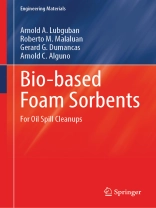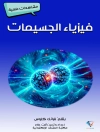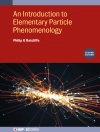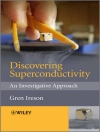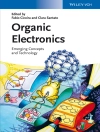This book highlights the advantages of using sorbents in oil spill cleanup while dealing with the challenges of limited capacity and disposal. Bio-based foam sorbents are new but promising sorbents to oil spill cleanup. They are environmentally friendly materials derived from renewable resources such as vegetable oil and biomass, designed to absorb or adsorb oil and other pollutants from water, coastal areas, wetlands, ice-covered waters, and urban surfaces. These foams offer a sustainable alternative to traditional petroleum-based sorbents, with comparable or even superior performance in oil adsorption capacity, recyclability, and biodegradability. Moreover, a bio-based foam sorbent with inherent hydrophobic property is discussed, opening a new pathway for bio-based foam sorbents that usually need surface modification. This book is a good read for environmental scientists, engineers, sustainability experts, and researchers offering insights in related to the chemistry, performance, and commercialization potential of bio-based foam sorbents. It explores various methods for synthesizing bio-based foam sorbents, providing a detailed examination of the underlying chemistry involved in these processes.
Tabela de Conteúdo
.- Introduction to Oil Spill and Sorbents.
.- Bio based Foam Sorbents Chemistry Synthesis and Properties.
.- Factors Affecting Foam Sorbent Performance.
.- Properties of Bio based Foam Sorbents.
.- Scalability and Other Considerations of Biobased Foam Sorbents.
.- Future Directions and Innovations.
Sobre o autor
Dr. Arnold A. Lubguban is a professor of Chemical Engineering and senior researcher at the Mindanao State University-Iligan Institute of Technology (MSU-IIT) in the Philippines. With a Ph.D. in Chemical Engineering, his expertise lies in the development of petroleum-based and sustainable polymers, focusing on industrial, environmental, biomedical, and nanotechnology applications. Dr. Lubguban’s research is dedicated to advancing renewable materials, with the goal of creating sustainable solutions for industrial and medical sectors. He obtained his Ph.D. from the University of Missouri.
Dr. Roberto M. Malaluan is a professor of Chemical Engineering at the Mindanao State University-Iligan Institute of Technology (MSU-IIT) and a pioneering researcher in the field of sustainable polymers and supercritical fluid extraction. He completed his Doctor of Engineering at Tohoku University, Japan. Dr. Malaluan has dedicated his career to teaching and research, particularly focusing on the supercritical carbon dioxide extraction of natural products, a technique he has applied to drug discovery and industrial applications.
Dr. Gerard Dumancas is a professor of Chemistry and associate dean of Research and Program Innovation at North Carolina Agricultural and Technical State University. He obtained his Ph.D. in Analytical Chemistry (Chemometrics) from Oklahoma State University. His research interests are in the areas of chemometrics, molecular genetics, analytical chemistry, analytical method development, STEM education, and machine learning techniques as applied to innovative bioenergy solutions.
Dr. Arnold C. Alguno is a professor of Materials Science and Engineering program at the Mindanao State University-Iligan Institute of Technology (MSU-IIT), specializing in semiconductor physics, solar cell technology, and nanotechnology. He obtained his Ph.D. in Physics at Tohoku University, Japan. His research spans a broad range of fields, including sensor technology, quantum dots, and advanced functional materials.
